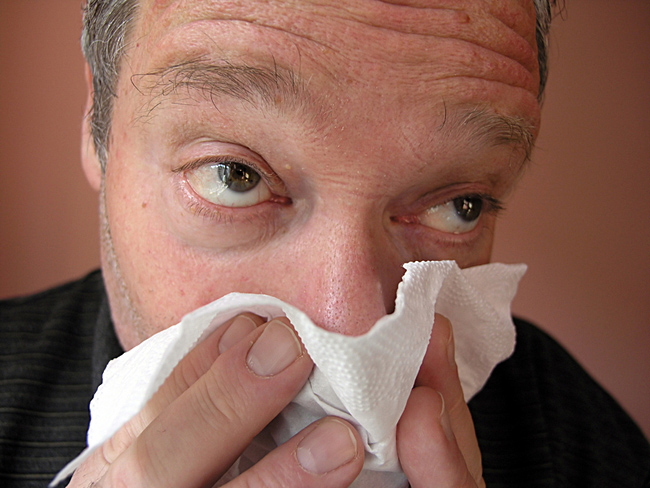Why You Need to Avoid Catching a Summer Cold

Your beach bag is packed, your swimsuit beckons and your calendar is full of fun plans for barbecues and backyard parties. But if you’re stuck inside with a miserable cold, you’re probably wondering what the heck happened.
And to make things worse, summer colds often last longer and have a higher chance of recurring, according to Dr. Bruce Hirsch, attending physician for infectious diseases at North Shore University Hospital in Manhasset, N.Y.
"The summer cold is really kind of tricky," Hirsch said, "probably because the viruses that cause it [can be] different than a winter cold. Something about it is awful and insidious."
Why summer colds are worse
The rhino-, corona- and parainfluenza viruses that cause upper respiratory infections in winter are joined in the warmer months by a particularly nasty accomplice: enterovirus, which can cause more complicated symptoms, Hirsch said.
Enterovirus spreads by coughing and sneezing, and by the fecal-to-oral route. The virus can bring diarrhea, he said, along with sore throats, rashes and other symptoms beyond the common cold's typical headache, hacking cough, congestion and low fever.
"Winter cold viruses tend to make you feel really sick, and then you get over it," he said. "Summer colds just seem to lurk in the background... and just go on and on and on."
Sign up for the Live Science daily newsletter now
Get the world’s most fascinating discoveries delivered straight to your inbox.
Another summer-specific factor that can up the odds for colds is constant exposure to re-circulated air, which can dry out the lining of the nostrils, giving an open port to viruses. Such is the case in both air-conditioned buildings and in airplanes full of vacationing travelers, said Dr. Tamara R. Kuittinen, director of medical education in the emergency medicine department at Lenox Hill Hospital in New York City.
"Surfaces are touched hundreds of times on airplanes," Kuittinen said, recommending travelers pack a small medical kit containing cold relief products such as acetaminophen, ibuprofen and saline drops.
Prevention
So how can you prevent a cold from ruining summer fun? Hirsch and Kuittinen offered tips:
- Wash your hands often and keep a stash of hand sanitizer handy in pocket or purse.
- Get plenty of sleep to bolster your immune system.
- Stay well-hydrated.
- Eat a balanced diet.
- Use common sense and avoid contact with sick people.
Additionally, those who have been sedentary through the winter should gradually ease into physical activities, Hirsch said, because enterovirus is the only infection associated with strenuous exercise.
"I think these subclinical, mild infections have a way of acting up just when we're getting excited about the beautiful weather," he said. "In summertime, we go outdoors and exercise vigorously, maybe when we're not in great shape. That's when these enteroviruses like to show up."
Fighting a summer cold, however, involves the same tactics as battling its winter counterpart, said Dr. Tom Slama, president-elect of the Infectious Disease Society of America.
During the typical five- to seven-day lifespan of a cold, Slama said, symptom management is key to staying comfortable. Keeping analgesics, cough medicine and saline drops on hand are probably smart bets, he said.
But asking your doctor for antibiotics — which fight bacterial illnesses, not the viruses that cause colds — won't help.
"There’s no role for antibiotics in colds," he said.
This story was provided by MyHealthNewsDaily, sister site to LiveScience. Follow MyHealthNewsDaily on Twitter @MyHealth_MHND
Measles has long-term health consequences for kids. Vaccines can prevent all of them.
100% fatal brain disease strikes 3 people in Oregon









